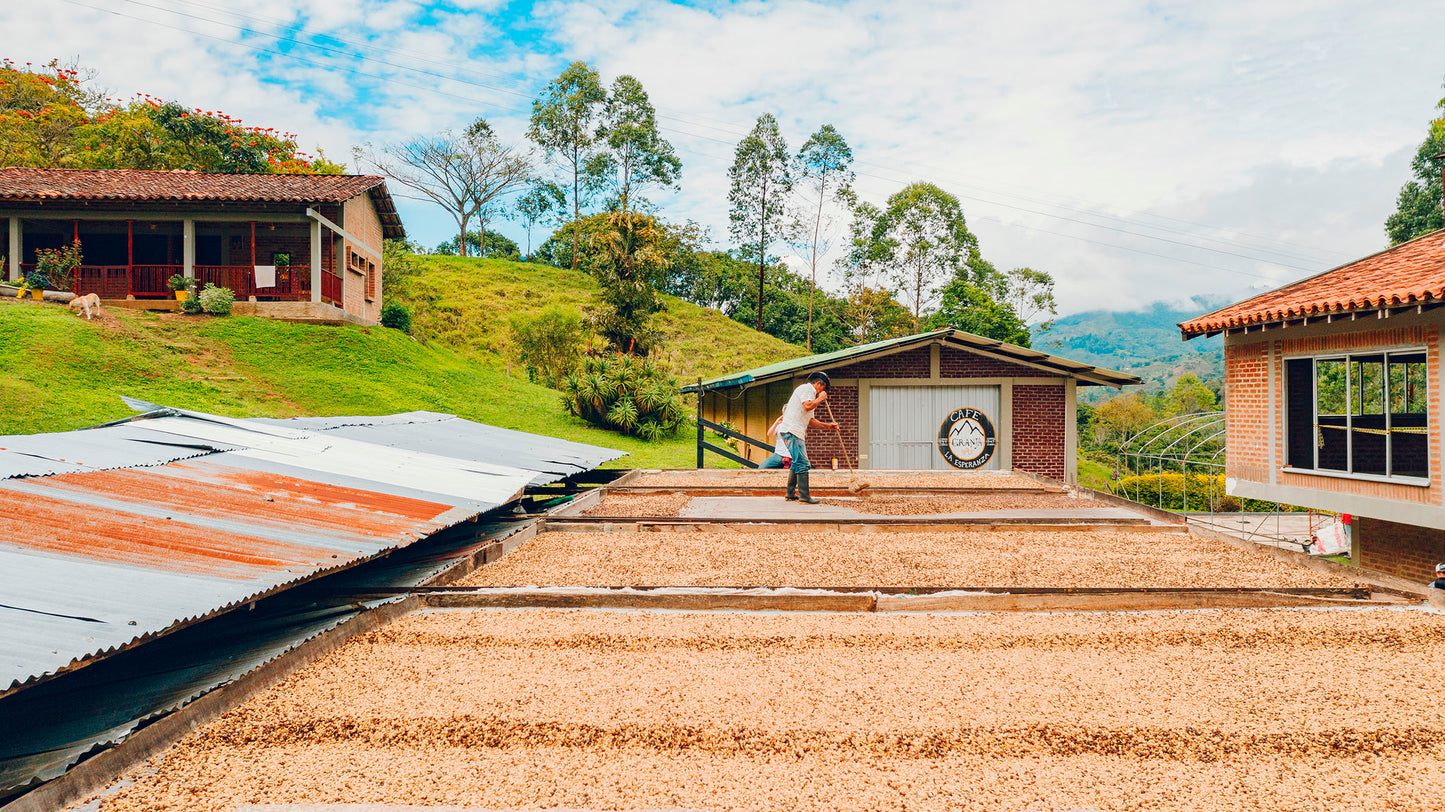Before we talk about anything coffee, let's get FAC(t)01 on the table. The coffee bean is actually a seed, the seed of the coffee cherry/berry.
Coffee is a Fruit.
It's remarkable that so many people that drink coffee every day have no idea about this. It's also remarkable that so much coffee out there tastes nothing like fruit at all. In fact, so much of it tastes nothing like fruit, that when we point this out to our customers they find it hard to believe.
As the founder and owner of a coffee company, I am not ashamed to admit that up until 2011 I had no idea that the black liquid I craved every morning was as much a fruit product as the OJ I chased it down with.
The eureka moment for me was when—during a visit to Merchants of Green Coffee in Toronto—I tasted a naturally processed coffee from Bali. The owner said to me (and I’m paraphrasing here):
"The coffee beverage that millions around the world start their day with, is made from one of the most flavor complex seeds in the world. That seed—which we call a bean—is the seed of a fruit. And that little seed has the potential to display double the flavor complexity of even the finest wine."
I was shocked. In the 30+ years I’ve been on this planet I somehow completely missed this. I sipped the cup he handed me. It was revelatory! It tasted nothing like any other coffee I had tried before. Growing up on English instant coffee, the coffee I drank up until this point mostly tasted of charred rubber and burnt caramel. But now, I was drinking a lovely beverage that tasted of Summer Strawberries.
I was floored. What is this? How is this coffee?
Along with my FAC(t)01 I was told that coffee was a perishable product and that after it’s been roasted we have only a small window to grind, brew, and consume it if we want to enjoy any of its complex natural flavor characteristics. Also, almost all commercial coffees served were either stale, burnt, or more unfortunately, both.
I just didn't understand. If coffee could have such complexity, why burn it? Why serve it stale? I'd choose summer strawberries in my coffee over burnt rubber every day of the week.
After leaving Toronto and the magic of Merchants of Green Coffee, I was more than a little intrigued. I went back to the NY/NJ area and started seeking out what I was told were called third wave coffee shops to find that magical fruity fresh coffee experience again. And whilst there was a scattering of "third wave" style shops back then in 2011 I could not find one serving up a coffee that underlined/highlighted my newfound discovery that coffee was a fruit.
When I mentioned that I was looking for fruity coffees, I was often served something that—although definitely didn't taste like burnt rubber, and had more flavor complexity than your average joe—still felt like a letdown when compared to the experience I had in Toronto. They simply didn't deliver on the promise of flavor notes of guava, pineapple, or plum.
‘The coffee in these cafes must be stale.’ I thought. I asked all the baristas when the coffee was roasted, and everytime the coffee being served was within the window of fresh. ‘Perhaps the coffee was over roasted?’ I thought. I asked the baristas, and it was always a light to medium roast, allowing the natural flavors of the coffee to shine through. So why wasn't I getting that fruity flavor that I had so fallen in love with in Toronto? Where was my FAC01?
Then I found one. An Ethiopian coffee from Brooklyn Roasters. It promised blueberries, and delivered them in buckets! This time around I discovered why; according to the tin it was naturally processed—or as some called them “dry processed” coffees. Meaning that after the berry had been picked, the seed was sundried inside its fruit casing before being removed. Since it’s drying inside the fruit, the seed absorbs many of the fruity flavors and sweetness. Then, when roasted appropriately, lent themselves to a very sweet and fruity cup of brewed coffee.
I knew now what to look for in my quest for FAC01. I went back to the third wave cafes of NY asking for natural or dry processed coffees and more often than not got one of two responses. “We don't carry them” or “they suck” followed by “we don't carry them”.
There seemed to be an immense dislike of natural coffee in the professional coffee world which seemed bizarre to me because everyone who I brewed the Ethiopian for were literally blown away!
I started to have people over to my apartment. I brewed them washed coffees and naturals and it was ALWAYS the naturals that got people talking and engaged. It was from this moment that modcup was born, and we began to use naturals to introduce the average Joe into the specialty coffee world.
There was no better coffee than a natural to underline
FAC01 Coffee is a Fruit
and at the same time underline the point of importance that freshness makes in coffee.
But that’s a discussion for another post.









